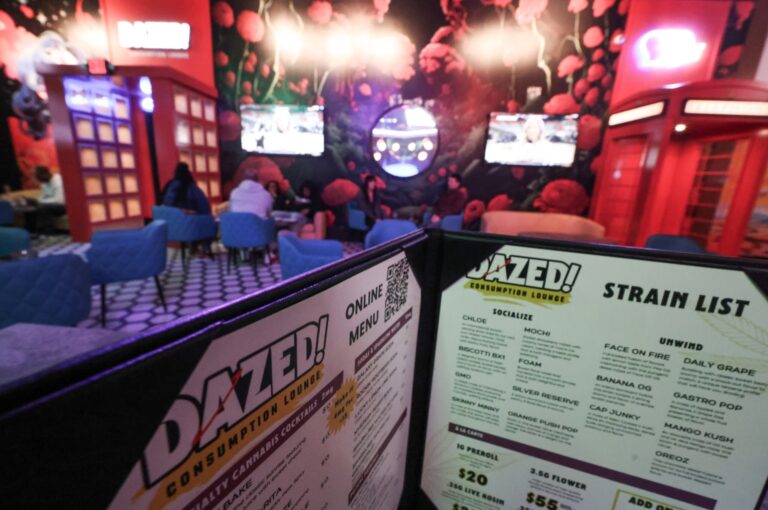Cannabis Lounges in Nevada: Challenges and the Road Ahead
In recent years, cannabis lounges in Nevada were anticipated to become key attractions within the state’s legal marijuana industry, paralleling the famed cannabis culture of Amsterdam. However, after four years since legislation allowed their establishment, enthusiasm around these lounges has dwindled significantly, with current statistics reflecting serious issues in both operations and consumer interest.
The Current Landscape
As of now, only one state-licensed cannabis consumption lounge remains operational in Nevada: Dazed!, which is located within the Planet 13 Dispensary complex. Notably, the recent closure of another lounge, Smoke and Mirrors, which had only been open for about two months, underscores the difficulties facing this business model.
Experts attribute the challenges that cannabis lounges encounter to several factors, including:
- Stringent regulatory frameworks
- High financial entry barriers
- Limited consumer demand
Economic Impact and Outlook
Overall cannabis sales in Nevada have dropped 17% since 2021, indicating a broader trend of declining interest. Christopher LaPorte, a consultant at RESET Hospitality, emphasizes the need for lounges to cater beyond traditional cannabis users, suggesting that successful venues incorporate broader hospitality concepts.
“What we learned over the past year is that venues appealing solely to typical cannabis consumers are not viable,” LaPorte noted. “We must create spaces that attract both tourists and locals alike.”
Regulatory and Operational Challenges
According to James Humm, Executive Director of the Cannabis Compliance Board (CCB), prospective lounge operators face crucial challenges, including the need for substantial operational liquidity—around $200,000—before they can welcome guests. Additionally, rigorous location and health inspections are mandated, complicating the establishment process.
“Finding suitable locations that comply with existing zoning laws remains a major hurdle,” Humm stated. “Our goal is to facilitate the opening of more lounges, but numerous factors impede that progress.”
Social Equity and Inclusivity Issues
The challenges are further deepened for social equity applicants, intended as a means to diversify and broaden access within the industry. To date, no social equity lounges have launched despite legislative efforts. Factors like limited business networks and financial resources exacerbate the hurdles these applicants face, according to industry analysis.
Recent legislative proposals, such as Assembly Bill 203, aim to relieve some of these burdens by easing financial documentation requirements for social equity applicants. However, hurdles in operational and financial realms continue to pose risks to potential operators.
Comparative Perspectives: Success in Other States
Unlike Nevada, other states like California are witnessing successful hybrid models that combine cannabis consumption with dining and entertainment. LaPorte advocates for Nevada to adopt similar approaches by integrating food and other amenities within the lounge experience to attract a broader customer base.
As Rob Hill, editor of Hii Magazine, indicates, Las Vegas has the potential to compete with more successful models elsewhere, particularly in venues that offer a stimulating combination of activities beyond merely smoking cannabis.
The Future of Cannabis Lounges in Nevada
With a single lounge currently engaging customers, a renewed focus on operational flexibility and diversified offerings is crucial for rejuvenating consumer interest. Innovators within the industry are exploring options that blend food service, entertainment, and cannabis consumption to create vibrant and attractive spaces for patrons.
As stakeholders evaluate the current regulatory framework and operational strategies, the success of Nevada’s cannabis lounges may hinge on their ability to evolve into multifunctional venues that cater to a wider audience. Until then, the future of this sector remains uncertain, reflecting a microcosm of the broader challenges facing the legal cannabis market across the United States.


